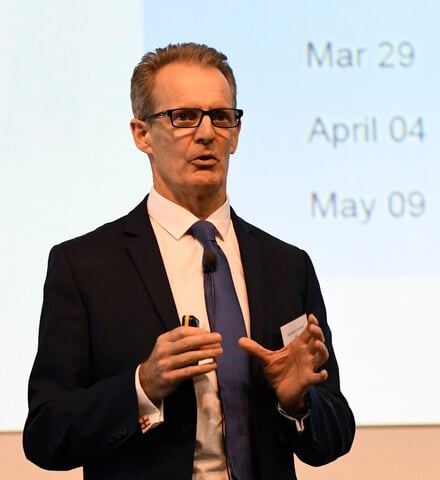
The UK is working towards finalizing a global first-of-its-kind policy to incentivize the production of Sustainable Aviation Fuel (SAF) in the UK. SAF production has been disappointingly slow to scale up, in part due to the complex and costly investments needed to get facilities off the ground. The ambition of the UK policy is to de-risk the private investment needed and subsequently propel this nascent industry forward.
The policy, termed a revenue certainty mechanism (RCM), ensures producers a guaranteed level of revenue as the market matures. This sort of scheme is not new—it has worked well in establishing an offshore wind sector for the UK—but is new for SAF production. The UK government is proposing the industry (in fact mainly the airlines) fund the scheme, adding additional layers of cost to a sector already exposed to incredibly high SAF pricing.

Jonathon Counsell, Group Sustainability Officer at International Airlines Group (IAG), the parent company of British Airways, explains further …
The UK SAF mandate started this year and initially requires 2% of all aviation fuel supplied in the UK to be SAF, ramping up to 10% by 2030. The EU has a similar mandate, with a 2% requirement in 2025 but their mandate is for 6% by 2030.
A large amount of SAF is currently produced in the US where incentive schemes through tax credits have bolstered investments, while in the UK there is one facility today producing commercial volumes of SAF and plans for test facilities that can scale up in the next five years. In 2024, SAF production volumes reached 1 million tonnes (1.3 billion litres), double the 0.5 million tonnes (600 million litres) produced in 2023. SAF accounted for 0.3% of global jet fuel production and 11% of global renewable fuel.
SAF is key to the aviation sector meeting its Net Zero CO2 emissions by 2050 commitment, IATA anticipates 65% of the decarbonization will come from the use of SAF. But we are facing challenges – SAF under the mandate is more expensive than anticipated and European airlines are therefore paying far more than other operators to fly as all our flights are subject to the mandate – whether it be in the UK or EU. Governments in Europe have legislated for SAF use through mandates, before essential production incentives have kicked in.
Stimulating supply is important – it will ensure airlines can maximize the use of SAF and abate CO2 emissions quicker, but also will keep prices down. Airlines are currently paying on average ~ 3 to 5 times more for SAF over traditional jet fuel, which is far higher than anticipated when the policy was designed. It seems the suppliers are simply passing on their obligations under the mandate to the airlines via compliance fees, and there is a significant gap between SAF market prices and the real cost of SAF airlines are facing at airports, which is a lose-lose for both airlines and consumers.
The development of a UK SAF industry is vital to bring scale of SAF locally, so we’re not importing all our sustainable fuel to meet mandates. Our focus is the incentive mechanism, known as the Revenue Certainty Mechanism (RCM), which will guarantee the pricing structure for producers. While we’re fully supportive of an RCM, the decision about who pays for the mechanism is worrying airlines.
Under current proposals, airlines and their suppliers could end up paying even more to fund the new SAF plants. We must ensure new proposals are not at the expense of keeping air travel affordable and accessible when aviation drives billions of pounds of economic value (GVA – Gross valued Added) and supports hundreds of thousands of jobs across the economy. Fuel bills are typically up to a third of an airline’s costs, and in the UK, we already pay significantly higher costs than our competitors with Air Passenger Duty, higher airport charges and business rates, and carbon charges through the UK Emissions Trading System.
We believe there is a different way to fund the RCM: using the aviation industry’s contribution into the UK Emissions Trading System. The UK ETS was set up in 2021 as a way to reduce CO2 emissions from heavy industries and is paid into by firms in energy-intensive sectors - including aviation. It’s estimated there will be ample contribution to the Treasury over the coming 10 years from aviation ETS - around £1 billion to £4 billion. This funding could be used for SAF projects which is entirely consistent with the original purpose of the scheme. Indeed, in the EU, ETS funds are recycled to provide SAF allowances to contribute to the price difference between SAF and kerosene and support the Innovation Fund[1] which backs projects for the innovation of low-carbon technologies.